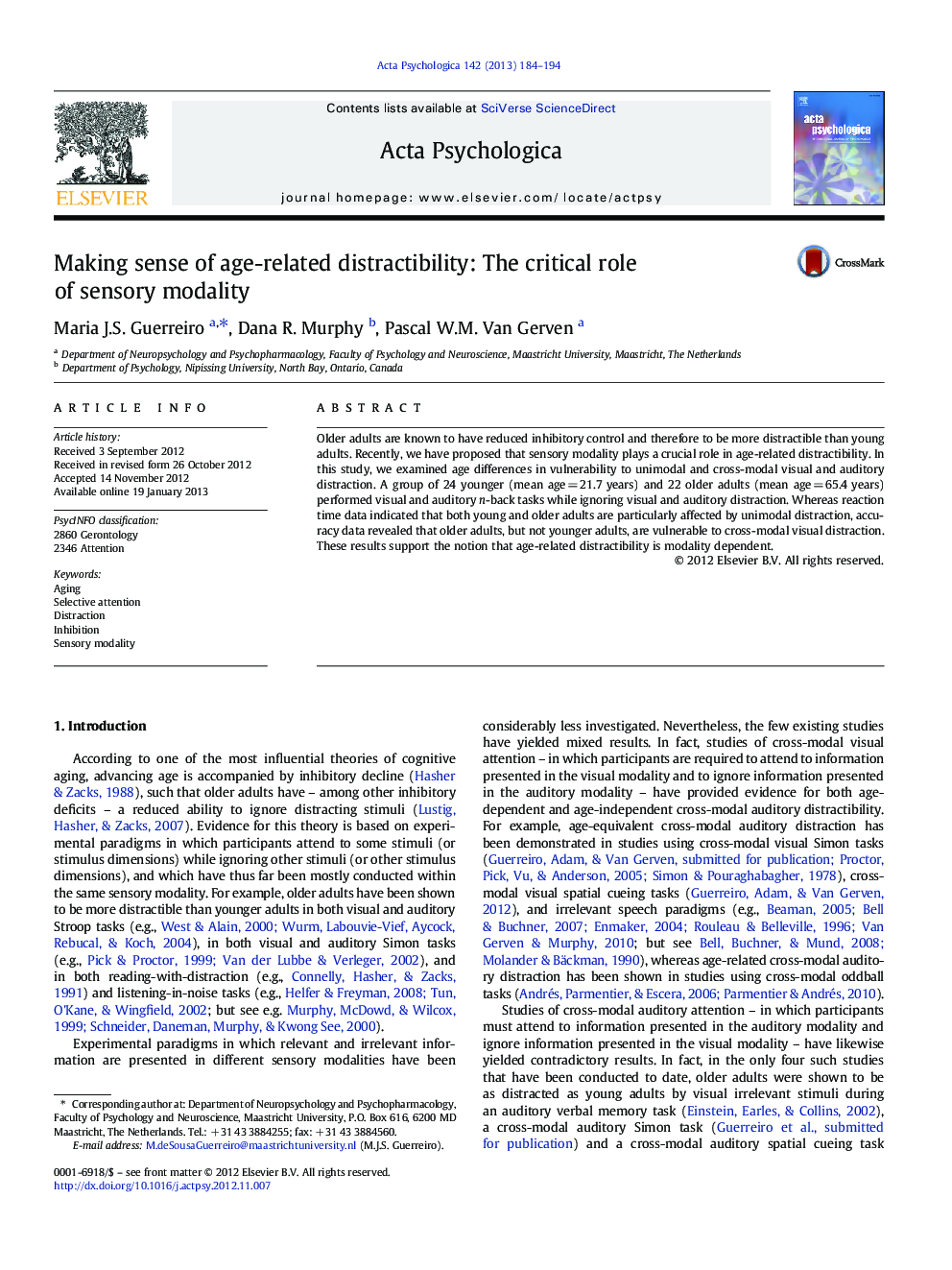| Article ID | Journal | Published Year | Pages | File Type |
|---|---|---|---|---|
| 919880 | Acta Psychologica | 2013 | 11 Pages |
Older adults are known to have reduced inhibitory control and therefore to be more distractible than young adults. Recently, we have proposed that sensory modality plays a crucial role in age-related distractibility. In this study, we examined age differences in vulnerability to unimodal and cross-modal visual and auditory distraction. A group of 24 younger (mean age = 21.7 years) and 22 older adults (mean age = 65.4 years) performed visual and auditory n-back tasks while ignoring visual and auditory distraction. Whereas reaction time data indicated that both young and older adults are particularly affected by unimodal distraction, accuracy data revealed that older adults, but not younger adults, are vulnerable to cross-modal visual distraction. These results support the notion that age-related distractibility is modality dependent.
► Older adults are particularly affected by cross-modal visual distraction. ► No age differences in unimodal distraction or cross-modal auditory distraction. ► Sensory modality plays a critical role in age-related distractibility.
